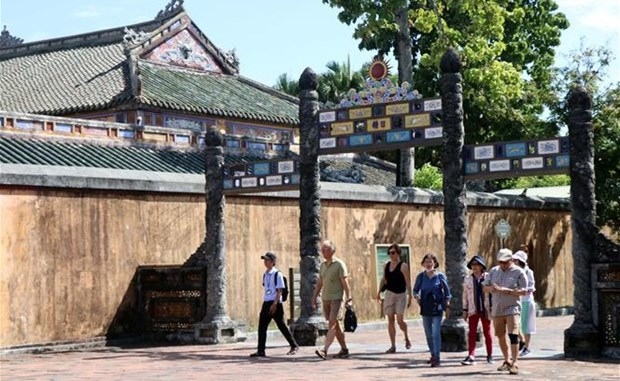To attract more tourists and improve the competitiveness of Vietnamese tourism, in addition to the new e-visa policy, there is still much work to be done, including building products to meet the needs of long-term vacationers and those with high payment capacity, according to the Ministry of Culture, Sports and Tourism.

On August 14, the Government issued a resolution on granting e-visas to citizens of all 257 countries and territories, allowing them to enter and exit the country using e-visas through 13 air, 16 land, and 13 sea border gates.
Under the law amending and supplementing some articles of the Law on Exit and Entry of Vietnamese Citizens and the Law on Foreigners’ Entry into, Exit from, Transit through and Residence in Vietnam, which became effective on August 15, the e-visa validity period is extended to 90 days from 30 days. Within 90 days after the e-visa is granted, foreigners can enter and exit Vietnam for unlimited times and without having to apply for new visas.
The law also permits citizens of the countries entitled to Vietnam’s unilateral visa exemption to be granted a temporary residence period of 45 days, instead of 15 days like in the past, and have visa granting and temporary residence extension considered in line with regulations.
Representatives from local travel agencies said that the new e-visa polity will help them deal with numerous problems and obstacles in attracting foreign holidaymakers.
It will be more convenient for visitors in carrying out entry-exit procedures, and their travel plans can be made flexibly and economically.
Changes in the visa policy will create a boost for the international tourism market to recover strongly, at least equal to 70%-80% of that before the COVID-19 outbreak.
To that end, the tourism ministry urged enterprises to develop new tours and products to better serve those with longer stays.
The ministry recently issued a strategic plan for Vietnam's tourism marketing to 2030 and a project to develop several night tourism models, which include orientations for localities and businesses to build tourism products and services to satisfy tourists' needs.
It is also necessary to prepare human resources, provide quality services, and improve management in localities, particularly at large tourist centres.
The e-visa policy, which took effect from August 15, is expected to help Vietnam attract a hike in the number of international visitors right in the autumn-winter tourist season of 2023, said Do Van Hao, Deputy Chief of Police at Tan Son Nhat International Airport in Ho Chi Minh City.
The new visa policy is presenting an opportunity for Vietnam's tourism industry to enhance its competitiveness, said the Ministry of Public Security’s Vietnam Immigration Department during a press conference in Hanoi on August 30.
Bình luận
Bình luận của bạn sẽ được xét duyệt trước khi đăng